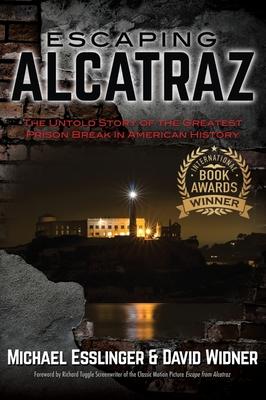NOTE: This book contains graphic depictions of extreme crime and violence. Its content may not be suitable for all readers.
Under the cover of night on June 11, 1962, using only crude homemade tools, Frank Morris and brothers John and Clarence Anglin tunneled their way out of Alcatraz, America's most secure maximum security prison. Enacting a complex escape plan, the trio broke free from the cellblock, made it undetected past patrolling guards, inflated homemade life vests and a raft, and set sail into a foggy history. Made famous by the classic film Escape from Alcatraz starring Clint Eastwood and multiple Hollywood documentaries, this legendary mystery is still debated over a half century later.
Considered America's Devil Island, Alcatraz opened in August 1934 with the intent to turn the spectacularly colorful dispositions of America's worst criminals into a world of black and white. Cramped cells, stern discipline, strict rules, and an unrelenting routine shaped almost every aspect of daily life on the Rock. The island was a natural fortress, separated from the mainland by a narrow strait of frigid water and deadly currents. It was believed that no one could escape alive. With its damp cold and austere isolation, Alcatraz was the toughest of all federal penitentiaries--as tough as the criminals housed there--and it successfully contained some of America's most notorious outlaws.
In Escaping Alcatraz: The Untold Story of the Greatest Prison Break in American History, Alcatraz Historian Michael Esslinger and David Widner, nephew of the Anglin brothers, both featured in the History Channel documentary Alcatraz: Search for the Truth, have compiled hundreds of photographs, FBI and Bureau of Prisons investigative notes, original source documents from the Anglin family library, inmate case file records, interviews with key convicts and officers, and first-person accounts of officials who investigated the escape to produce one of the most detailed narratives of the famed prison break.
